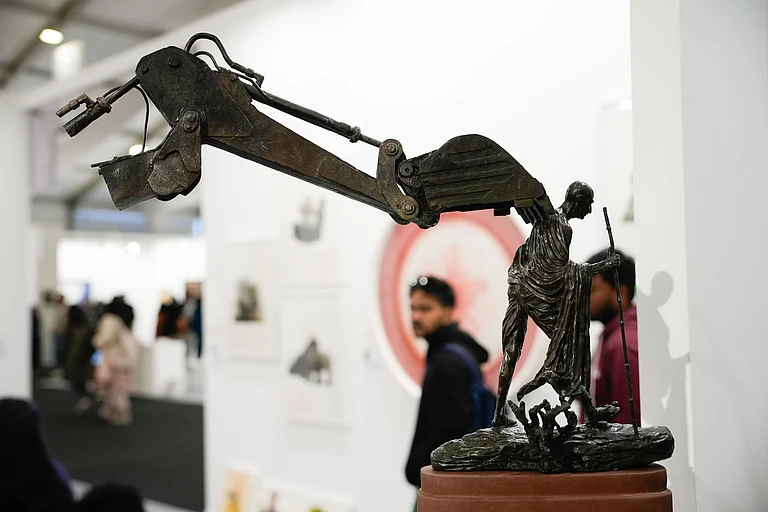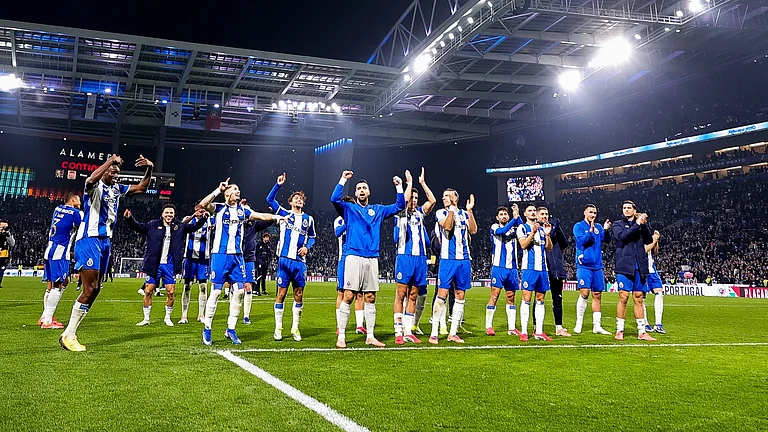IT'S AD 2000. The cover of Outlook dated May 28 shows a Maruti 800, its paint scraped off, its tyres punctured, its windscreen broken. Behind the car is a mountain of metal: hundreds of junked Maruti 800s. The cover line is: "How To Ruin A Megacorp."
Inside, a seven-page story reveals some stunning statistics about the Indian car market in 1999-2000. The Maruti 800's marketshare has fallen from the commanding 75 per cent or so in the mid-1990s to just over 40 per cent. The number of Maruti 800s sold in 1999-2000 has been a shocking 23.7 per cent lower than the number sold the previous year. Daewoo and Hyundai 800 cc cars have made inroads into M800 territory, both notching up marketshares larger than 25 per cent. "The reason is simple," the magazine quotes Subby Subramaniam, industry analyst at Arthur D. Little, as saying. "The M800 is technologically obsolete. Even the dies and moulds they're using are worn out, leading to quality problems and customer dissatisfaction."
The genesis of this awful state of affairs, the Outlook story reveals, is the complete breakdown of communication in late-1997 between the two equal-share promoters of Maruti, the government of India and Suzuki Motor Corporation. Suzuki went to the International Court of Arbitration over the government appointing R.S.S.L.N. Bhaskarudu as managing director without consulting it, and the government simply stopped speaking to its partner. Suzuki representatives flew down to India every month but were faced with a wall of silence at the industries ministry. Their phone calls were not returned, they got no appointments with anyone. Meanwhile, the government delayed proceedings at every point at the International Court of Arbitration, and the case is still dragging on, while Bhaskarudu has already completed two-and-a-half years on the job.
The Outlook article claims that since mid-1997, Suzuki had repeatedly warned the government that by AD 2000, two million M800s would have been manufactured, and this would have completely worn off the dies, that the M800 would look obsolete the moment competing products were launched by companies like Daewoo and Hyundai in 1998-99. That it was extremely urgent that the M800 be replaced by a new model, that a new model takes two years from conception to rollout, and that the two partners need to talk now to make sure that the new model was on the roads by 1999. The only response of the government to Suzuki was silence, sabre-rattling about national pride in public, and the relaunch of all the Maruti models with minor cosmetic changes while claiming them to be new models.
On its part, Suzuki refused to withdraw the arbitration proceedings, leading to a complete deadlock. In November 1997, Suzuki finally took full-page ads in all the major English dailies, giving its point of view. Industries minister Murasoli Maran reacted angrily and even industry association ASSOCHAM released a statement condemning the ad. (In January 2000, ASSOCHAM was renamed TCCOM: the Transnational Chambers of Commerce, since most Indian members had sold off their companies to TNCs and had become citizens of the Bahamas. ) The government tried to get technology for Maruti Udyog from several other global carmakers but Suzuki managed to block every attempt. By 1999, the Maruti story had become a famous Harvard Business School case study titled "Non-business imperatives in joint ventures: Globalisation and Maruti Udyog".
The Outlook article goes over the last six years of Maruti Udyog, beginning 1995 when industries minister K. Karunakaran hurt the company's expansion plans by insisting that the new car plant come up in his home state Kerala. Aghast, Suzuki and Maruti top brass managed to stall the issue—since there was absolutely no economic sense in the proposal—till the Narasimha Rao government fell, and Karunakaran lost his job. But by that time, Karunakaran had put in his own man as chairman of Maruti.
When Maran took over as industries minister in June 1996, he was friendly to Suzuki, meeting with the owner of the Japanese corporation several times, but within a year, relations grew strained. Suzuki's proposals were all met with suspicion and delaying tactics. When, at a board meeting, apparently, even two government-nominated directors began to side with the Suzuki point of view, the chairman silenced them by telling them that his view was the government's view, and they should blindly toe his line.
The partners then got into a fight about who had contributed more to Maruti's success: the government with its duty concessions, cheap land and other support, or Suzuki with its technology and management systems. Neither realised that the Maruti idea would never have worked without both of them.
Daewoo launched its small car in late 1998, and immediately cut into the M800's marketshare. Next came the Hyundai model, and the M800's fate was sealed. In October 1999, an Outlook story quoted a car owner as saying: "Buying the M800 today is like buying the Premier Padmini a few years ago. If you want to buy a less-than-modern car, go ahead and do it, but don't look at me." By December 1997, Suzuki had begun to panic, since the year 2000 deadline was now uncomfortably close, and every month lost could translate into sales debacles two years down the line. But the Gujral government fell, postponing everything by four months. The next government too preferred to be 'nationalistic' without paying any attention to the fact that Maruti doing better directly translated into more riches for the government. Thus was a great Indian company ruined.
The May 28, 2000, cover story ends by quoting from a piece it published in its December 15, 1997, issue. Titled "Silence Is The Enemy", the article ends with an entreaty to the Indian government: "As in marriage, so in joint ventures. When spouses refuse to sit down and discuss the future of their child, nine times out of 10 you get delinquency. The government has already proved its point that it's tough, it's nationalistic, and it can't be browbeaten. It now needs to turn its attention back to its child, Maruti Udyog. But without dialogue, there can be no agreement. By closing the doors to Suzuki's requests for talks, the government is not any more acting in the national interest. Right now, silence is the enemy."























